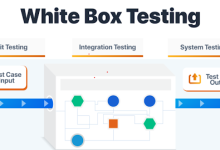The Ultimate Guide to Choosing the Best Web Hosting for Your Website

Introduction
Choosing the right web hosting provider is crucial for the success of your website. A reliable and efficient web hosting provider ensures that your website is accessible to visitors at all times, provides adequate security measures, and offers the necessary resources to support your website’s growth. With so many options available, it can be overwhelming to find the best web hosting provider for your specific needs. This guide aims to provide you with a comprehensive overview of the factors to consider when choosing a web hosting provider and help you make an informed decision.
Understanding the Basics of Web Hosting
Web hosting refers to the service that allows individuals and organizations to make their websites accessible on the Internet. When you create a website, all the files, images, and content need to be stored on a server. A web hosting provider owns and manages these servers, ensuring that your website is available to users 24/7.
Web hosting works by storing your website’s files on a server and assigning it a unique IP address. When a user types in your website’s domain name in their browser, their computer sends a request to the server where your website is hosted. The server then retrieves the necessary files and displays them on the user’s browser.
There are several types of web hosting available, each offering different levels of resources and control. The most common types include shared hosting, VPS hosting, dedicated hosting, cloud hosting, and managed hosting.
Types of Web Hosting: Which One is Right for You?
1. Shared Hosting: Shared hosting is the most affordable option and is suitable for small websites or beginners. With shared hosting, multiple websites share the same server resources, including CPU, RAM, and disk space. While this can lead to slower performance if other websites on the server experience high traffic, shared hosting is a cost-effective solution for those with limited budgets.
2. VPS Hosting: Virtual Private Server (VPS) hosting offers a higher level of control and resources compared to shared hosting. With VPS hosting, your website is hosted on a virtual server that mimics a dedicated server. This means you have dedicated resources and greater control over your hosting environment. VPS hosting is ideal for websites that require more power and flexibility.
3. Dedicated Hosting: Dedicated hosting provides the highest level of control and resources as you have an entire physical server dedicated to your website. This option is suitable for large websites or businesses that require maximum performance, security, and customization options. Dedicated hosting is more expensive but offers unparalleled reliability and scalability.
4. Cloud Hosting: Cloud hosting utilizes multiple servers to host your website, ensuring high availability and scalability. With cloud hosting, your website’s resources are distributed across multiple servers, reducing the risk of downtime. This option is suitable for websites that experience high traffic or require flexible resource allocation.
5. Managed Hosting: Managed hosting is a service where the web hosting provider takes care of all the technical aspects of managing your website. This includes server maintenance, security updates, and backups. Managed hosting is ideal for those who lack technical expertise or prefer to focus on their website’s content rather than server management.
Factors to Consider When Choosing a Web Hosting Provider
When choosing a web hosting provider, there are several factors to consider to ensure that they meet your website’s requirements and budget.
1. Website Requirements: Consider the specific needs of your website, such as the amount of traffic you expect, the type of content you will host, and any special software or applications you require. Different web hosting providers offer different levels of resources and support for specific technologies.
2. Budget: Determine how much you are willing to spend on web hosting services. Shared hosting is the most affordable option, while dedicated hosting is the most expensive. Consider the value you will receive for the price and choose a provider that offers a balance between cost and features.
3. Technical Expertise: Assess your technical expertise and determine whether you require a hosting provider that offers managed services or if you are comfortable managing the server yourself. Managed hosting is a good option for beginners or those who prefer to focus on their website’s content rather than server management.
4. Reputation and Reviews: Research the reputation and customer reviews of different web hosting providers. Look for providers with a strong track record of reliability, excellent customer support, and positive reviews from other users.
5. Location and Data Center: Consider the location of the web hosting provider’s data center. If your target audience is located in a specific region, choose a provider with data centers in that area to ensure faster loading times and better user experience.
Uptime and Reliability: Why They Matter
Uptime refers to the amount of time that a website is accessible to users. Reliability refers to the consistency and stability of a web hosting provider’s services. Both uptime and reliability are crucial factors to consider when choosing a web hosting provider.
A website that experiences frequent downtime can result in lost revenue, decreased search engine rankings, and a negative user experience. Users expect websites to be available at all times, and if they encounter frequent downtime, they are likely to leave and never return.
To check a web hosting provider’s uptime and reliability, look for their uptime guarantee, which is usually expressed as a percentage. A 99.9% uptime guarantee means that the provider guarantees that your website will be accessible 99.9% of the time. Additionally, read customer reviews and testimonials to get an idea of the provider’s reliability.
Security Features to Look for in a Web Hosting Provider
Website security is of utmost importance to protect your website and its data from hackers, malware, and other threats. When choosing a web hosting provider, look for the following security features:
1. SSL Certificates: Secure Socket Layer (SSL) certificates encrypt the data transmitted between a user’s browser and your website, ensuring that sensitive information such as passwords and credit card details are secure. SSL certificates are especially important for websites that handle sensitive information or conduct e-commerce transactions. You can find some Cheap SSL Certificates from reputed sources to secure your website.
2. Backup and Disaster Recovery: Choose a web hosting provider that offers regular backups of your website’s files and databases. In the event of a data loss or disaster, having backups ensures that you can restore your website quickly and minimize downtime.
Scalability: Planning for Future Growth
Scalability refers to the ability of a web hosting provider to accommodate the growth of your website. As your website grows and attracts more traffic, you may need additional resources to ensure optimal performance. When choosing a web hosting provider, consider their scalability options:
1. Upgrading Hosting Plans: Choose a provider that offers flexible hosting plans that allow you to easily upgrade your resources as your website grows. This ensures that you can scale your hosting environment without experiencing downtime or performance issues.
2. Cloud Hosting: Cloud hosting is highly scalable as it allows you to easily add or remove resources based on your website’s needs. With cloud hosting, you can scale your resources up or down in real time, ensuring that your website can handle sudden spikes in traffic.
Pricing and Value: Finding the Right Balance
When comparing pricing among different web hosting providers, it’s important to consider the value you will receive for the price. While it may be tempting to choose the cheapest option available, it’s important to ensure that the provider offers the necessary features and resources to support your website’s needs.
In addition to the base price, consider any hidden costs such as setup fees, domain registration fees, or additional charges for add-on services. Read the provider’s terms and conditions carefully to understand what is included in the price and if there are any limitations or restrictions.
Look for value-added features such as free domain registration, free SSL certificates, or free website migration services. These features can save you money and provide added convenience.
Customer Support: What to Expect from Your Web Hosting Provider
Customer support is an essential aspect of any web hosting provider. When issues arise with your website, you want to ensure that you have access to reliable and responsive customer support. Consider the following aspects of customer support when choosing a web hosting provider:
1. Types of Customer Support: Look for providers that offer multiple channels of customer support, such as live chat, phone support, and email support. This ensures that you can reach out to them in the most convenient way for you.
2. Availability: Check the provider’s customer support availability. Ideally, they should offer 24/7 support to address any issues that may arise at any time.
3. Response Time: Read customer reviews and testimonials to get an idea of the provider’s response time. A quick response time indicates that the provider values customer satisfaction and is committed to resolving issues promptly.
User-Friendly Control Panels: Making Website Management Easy
A user-friendly control panel is essential for managing your website efficiently. The control panel allows you to perform tasks such as managing domains, setting up email accounts, installing applications, and monitoring website statistics. When evaluating a web hosting provider, consider the following aspects of their control panel:
1. Ease of Use: The control panel should be intuitive and easy to navigate, even for beginners. Look for providers that offer popular control panels such as cPanel or Plesk, as they are widely used and have extensive documentation and support resources available.
2. Features and Functionality: Consider the features and functionality offered by the control panel. Look for features such as one-click installations of popular applications, website builders, and advanced customization options.
3. Mobile Accessibility: In today’s mobile-driven world, it’s important to choose a web hosting provider that offers a mobile-friendly control panel. This allows you to manage your website on the go, from any device.
Choosing the Best Web Hosting Provider for Your Specific Needs
When evaluating web hosting providers, it’s important to consider your specific needs and choose a provider that aligns with those needs. Here are some examples of web hosting providers for different types of websites:
1. Bluehost: Bluehost is a popular choice for small businesses and bloggers. They offer affordable shared hosting plans with excellent customer support and a user-friendly control panel.
2. SiteGround: SiteGround is known for its exceptional customer support and reliable hosting services. They offer a range of hosting options, including shared hosting, cloud hosting, and dedicated hosting.
3. WP Engine: WP Engine specializes in managed WordPress hosting, making it an ideal choice for WordPress websites. They offer advanced security features, automatic backups, and excellent performance.
4. HostGator: HostGator offers a wide range of hosting options, including shared hosting, VPS hosting, and dedicated hosting. They are known for their affordable pricing and reliable services.
Conclusion
Choosing the right web hosting provider is crucial for the success of your website. By understanding the basics of web hosting, considering factors such as uptime, security, scalability, pricing, and customer support, and evaluating providers based on your specific needs, you can make an informed decision. Remember to research and compare different providers, read customer reviews, and take advantage of free trials or money-back guarantees to ensure that you choose the best web hosting provider for your website.






